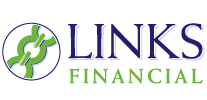Finding a buyer for the sale of your business can be challenging in and of itself. Add financing to the equation and the entire process may seem daunting. Before agreeing to less-than-optimal terms just to close the deal, let Links Financial walk you through all of the available options for financing the sale of a business and help structure a deal that’s best for you and your buyer.
Options for Financing the Sale of a Business
There are several options available for financing a business sale. Which is best for you depends on the nature of your industry and the buyer. Below are a few of the ways a business sale can be financed:
- All Cash – the buyer has enough capital available to purchase the company outright.
- Earn Out – either the business is paid for upfront by the buyer and the seller agrees to stay on for 2-3 years to aid in the transition, or the seller is paid over the next several years in the form of bonuses, etc., based on the company’s performance. In the latter scenario, the seller can sometimes end up making more than the original asking price.
- Leveraged Buyout – a third party (bank or investment firm) finances all, or a portion of, the business purchase for the buyer, sometimes via an SBA guaranteed loan.
- Cash + Seller Financing – the buyer makes a partial payment upfront (down payment) and the remainder is either paid over time with interest or the buyer and seller agree to a balloon payment down the road.
Financing the Sale of a Business
There was a time when leveraged buyouts (LBOs) were a common way to finance the sale of a business. Over the years, though, lenders were too often forced to restructure these loans when buyers defaulted on payments, leaving lenders feeling burned and less willing to provide this type of financing. Now the criteria required by banks is much stricter when it comes to financing a business sale. This has created an environment where buyers need to either put more of their own money toward the purchase or engage in a business partnership in order to finance the purchase.
Lender Buyouts
While it is tougher to obtain, LBO financing is still a good option for some transactions. For example, having third party finance a generational transfer is a good way to move some of the risk outside of your family, as long as the lender is willing to participate. Lenders are more willing to finance transitions when the buyer is experienced in the industry. Additionally, LBO financing is typically recommended for very small businesses.
Related topic: How to Have a Successful Generational Transfer
LBO financing is really a package made up of a combination of equity, debt and various types of loans. Depending on a plethora of factors, the percentages of each type of financing within the package differ. Conventional financing, asset-based lending, seller financing and mezzanine financing can all be part of an LBO package. In some instances of leveraged buy-outs, the seller is asked to be the backup if the buyer defaults on the loan, which isn’t an ideal position for any seller.
The structure of LBO financing packages is complex to say the least. Let Links Financial help you get the best structure for your business sale.
Seller Financing
Seller financing is involved in the majority of business sales nowadays – 90% of small business sales and more than 50% of mid-sized business sales. This means that you, the seller, likely must be open to financing a portion of the transaction in order to close the deal.
More on this topic: What is Seller Financing
Seller financing, or providing financing to the person buying your business, is typically a short-term loan (5-7 years) with a long-term payment schedule. Financing a business purchase this way has its pros and cons:
- Con: the seller retains risk as he or she is paid off over time even though control and management will have already been removed.
- Pro: seller financing is often required to secure a buyer and make the sale of a business possible.
- Con: the seller will have to step back in if the buyer defaults on payments.
- Pro: the seller will get beneficial tax breaks.
- Pro: seller financing deals have more relaxed loan terms than LBOs.
- Pro: it is easier to qualify a buyer.
- Con: buyers often try to renegotiate terms after the sale.
Seller financing is simpler and more flexible than using a third party, however the seller should be sure to protect their interest. For this reason, the buyer is often asked to put up more collateral (capital, real estate, investments, etc.). You, the seller, also can ask the buyer to personally guarantee the loan or to take out a life insurance policy with you as the beneficiary.
Get Help Financing the Sale of Your Business
Whether it’s seller financing, third party loans (LBOs) or a combination of the two, Links Financial can help you obtain the right type of financing for your transaction. With more than 100 years of combined experience, our team always focuses on obtaining the cheapest form of financing for our clients. We also aim to help business owners retain their ownership rather than entering into nonstrategic partnerships solely to get capital. Contact us today for help selling your business.

